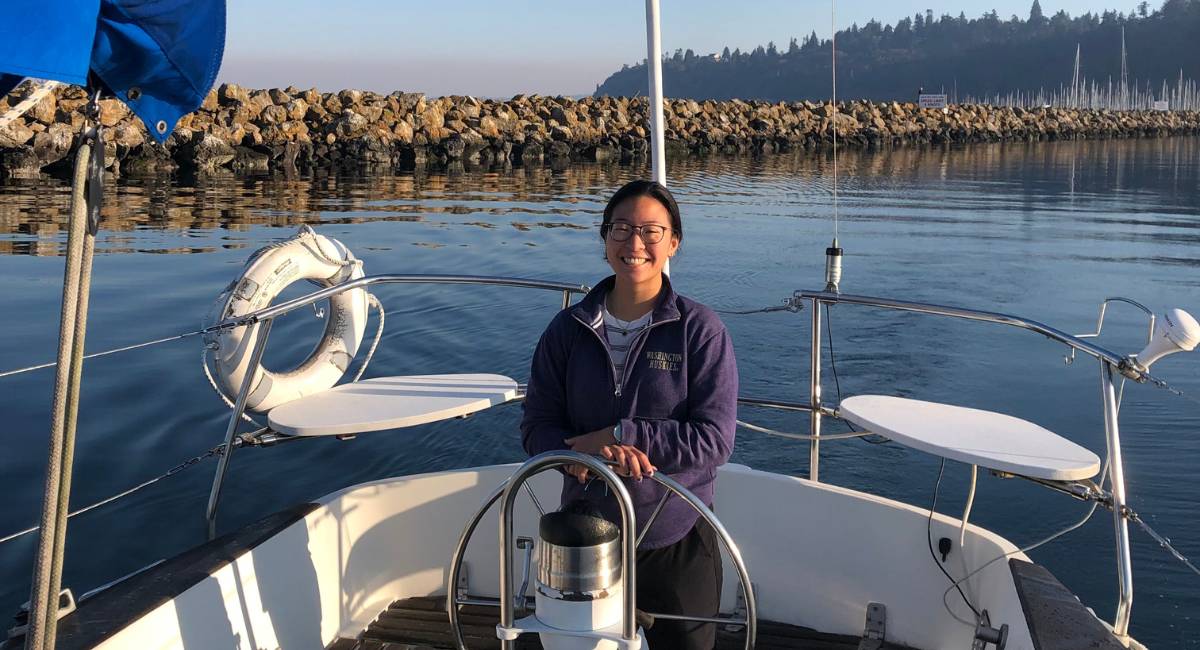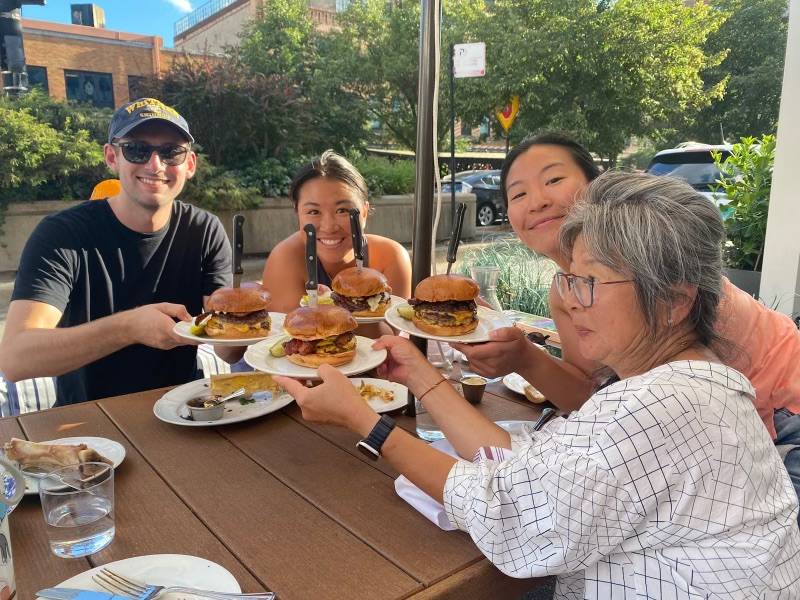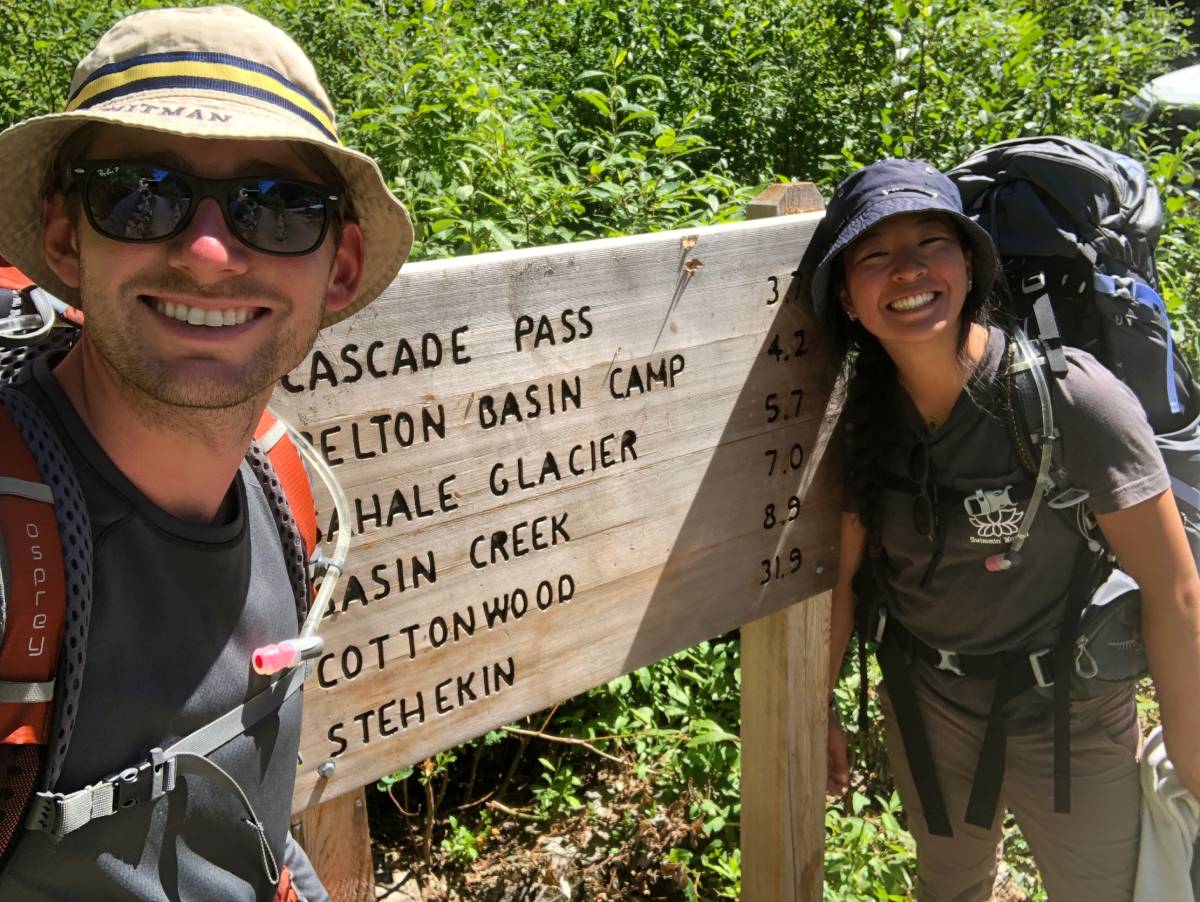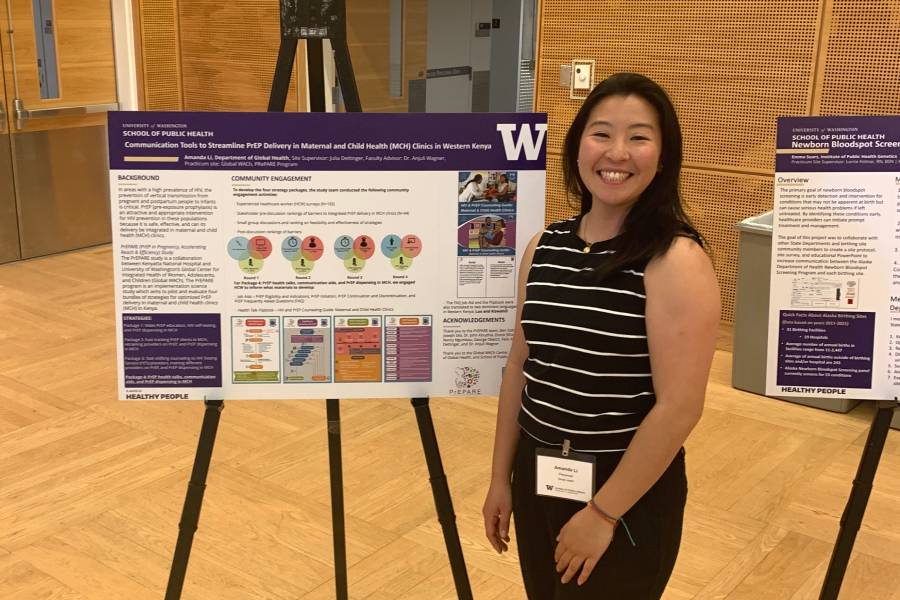
The more Amanda Li learned about how high-income countries like the U.S. have wielded their power on cultures, economies and people in global south countries, the more she wondered about her role as an American student pursuing a degree in global health.
In a class discussion at the University of Washington, Li posed these reservations to a group of panelists. Was there a way to equitably work in global health as someone who lived in the U.S.?
The panelists did not shy away from the question, Li recalls, and she found their answers heartening.
“They said that it's important to acknowledge the positionality and conflict within yourself, but also to know that I have perspectives that I can add and knowledge and skills that I've gained through this program that are going to be beneficial in this field,” Li said. “More voices are going to be welcome. There are times when I shouldn't be the one speaking up, but that doesn't mean that I can't be part of the conversation at all.”
Li’s willingness to engage in these challenging conversations around global health and health equity are what make her a leader in public health, her professors say. As a global health master’s student in the UW School of Public Health (SPH), Li has been thoughtfully engaging with Asian American communities in King County, rural communities across the U.S., and global communities in Kenya to support public health communications that align with those populations’ needs and goals.
For her academic excellence and commitment to public health, Li received the 2024 Gilbert S. Omenn Award for Academic Excellence, one of the most prestigious School-wide recognitions for master’s and doctoral students.
“Throughout the program, I have seen Amanda demonstrate genuine leadership and make outstanding contributions to public health both in and out of the classroom,” said Ahoua Koné, clinical associate professor at SPH and co-chair of the SPH EDI programs. “As her instructor, I witnessed her leadership skills as she facilitated productive and critical discussions on complex global topics such as decolonizing global health and health equity while humbly recognizing her positionality, being from a high-income country. Her commitment to being a lifelong learner and leader is abundantly evident.”
Li received a Health Equity Scholar internship with the Pacific Hospital Preservation & Development Authority to support organizations focused on health equity in the King County area. Working with organizations that served the Asian American community, Li developed a project to learn how telehealth services were adapted for elderly and immigrant populations in King County during the pandemic.

Through interviews with organizations across King County, Li learned that barriers like language, access to internet and devices, and digital literacy were all issues faced by the Asian American community in trying to access telehealth services during the pandemic. This work builds upon what is already known about the longstanding challenges elderly and immigrant communities face, even outside of a pandemic context. Li hopes this work can add to our understanding of how to support marginalized communities' health needs.
This capstone project was both personal and professional to Li, as a second-generation Asian American. It also helped her reflect on her own positionality as a public health practitioner and feeling like both an insider and outsider to her community:
“I was born here and I'm fluent in English and that is a huge privilege that makes me an outsider to this population,” Li said. “But it makes me want to support my community because at the same time, I am still part of it, and I have the privilege and knowledge of my educational background to make important changes or at least shed light on the experiences they are having.”
Li was grateful to have mentors of Asian descent — Diem Nguyen, who represents the Vietnamese Community Health Board, and Jane Lee, faculty in the UW School of Social Work — whom she could ask questions of during her capstone and check that her research questions reflected the experiences of King County-area Asian communities.
Even though her capstone experience in Seattle worked with a local population, Li also reflected on how the work focused on global themes: meeting the public health needs of immigrant communities. As Li puts it, “local is global.”

Li’s journey to global health first started with the Peace Corps. After graduating with a bachelor's degree in environmental studies and biology, Li wanted to learn more about the world and experience other cultures. She joined the Peace Corps as a youth development volunteer in the Kingdom of Eswatini. While teaching in secondary schools there, she became aware of the prevalence of HIV and the importance of sexual and reproductive health education.
“I learned that public health is everywhere,” Li said. “I also found that I really enjoyed teaching and communicating about health and that I was really interested in public health.”
This experience inspired Li to pursue an MPH in global health focused on health equity, social determinants of health, and program evaluation. During her studies, she reflected on the field of global health amidst the context of decolonization and anti-colonization. Having time to learn and reflect on these issues, Li considered how she would not have replicated her time in the Peace Corps, while also acknowledging how it sparked her interest in global health in the first place.
It also fueled her desire to work with organizations in the future that have a true commitment to health equity through actions rather than just language.
“As much as it's been an academic journey, it’s also been a personal journey. I have changed my conception of what I want from a career: I want to do something that I'm passionate about and that matters. I’m able to understand why I'm having those reservations about different types of global health work in the context of decolonization and anti-colonization and understanding that my role will sometimes be to step in and out of that space as someone who has my identity and positionality.”
Li’s MPH practicum project involved working with the Global Center for Integrated Health of Women, Adolescents, and Children, where she supported a Kenyan team in creating communication flipbooks to help health providers share information about medicine for HIV prevention, pre-exposure prophylaxis (PrEP). She also worked as a research assistant with Rural PRO-CARE, a project of the UW Global Cardiovascular Health Program, that seeks to better understand and improve upon barriers to rural access to cardiovascular care and increase rural health equity.

Li said she also learned from her cohort of fellow global health students. For the first year of the program, Li learned to love the required cohort class, where she could meet with her peers and discuss their experiences as graduate students.
She has also been eager to talk with prospective public health students over the years and learn about their public health passions. Whether it was discussing the Peace Corps or their ambitions in global health, Li prioritized having honest conversations about her experiences in the field. Just as Li had worried about her lack of public health background before joining the MPH program, she wanted students to understand that their skills and histories would be an asset to global health, regardless of their public health experience.
“People are worried about not having enough of a public health background, but honestly, that can be a strength,” Li said. “The work that you've done up until now, even if it isn't directly in public health, is still so valuable. It shapes how you see and interact with the world. There are people who haven't seen that perspective or haven't interacted with someone like you before. There's so much great interaction and learning you can have peer to peer. I've been able to experience that firsthand.”